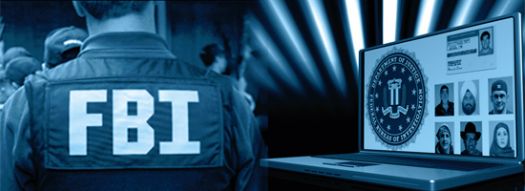, IPS/GIN

NEW YORK (FinalCall.com) – The Federal Bureau of Investigation improperly spied on U.S. activists involved in First Amendment-protected activities and mischaracterized nonviolent civil disobedience as terrorism, which placed innocent activists on terror watch lists, the American Civil Liberties Union (ACLU) charged in response to a new report by the Justice Department’s Inspector General.
Inspector General Glenn A. Fine undertook his investigation after a Freedom of Information Act request by the ACLU uncovered evidence that “the FBI was chilling political association and improperly investigating peaceful advocacy groups,” the civil rights group said in a statement.
The Inspector General found the improper investigations were often opened based on “factually weak” or even “speculative” justifications, and were sometimes extended in duration without sufficient basis.
The IG said that the low standard for opening investigations under the 2002 Attorney General Guidelines, which required only the “possibility” of a federal crime, contributed to the problem.
“The FBI also made false and misleading statements to Congress and the American public to mute criticism over its unlawful spying activities, including a false claim that improper surveillance of a 2002 anti-war protest in Pittsburgh was related to a separate, validly approved FBI investigation,” the report alleges.
It says that this incorrect information was repeated by FBI Director Robert Mueller before Congress and in communications between the bureau and Senator Patrick Leahy, Democrat of Vermont, who is chair of the committee.
Michael German, ACLU senior policy counsel and a former FBI agent, told IPS, “Basically what the IG report shows that the FBI spied on a lot of political activists for no good reason. This wasn’t just a waste of time and resources that could have been better spent looking at real criminals and terrorists, it had real consequences for the victims, getting them placed in terrorism databases and watchlists that led to more spying and travel delays. And unfortunately in many of the cases, the IG said the FBI’s rules allowed this inappropriate spying.”
Despite the public outcry over the 2006 disclosure that federal agents had investigated dozens of domestic political advocacy groups, the FBI was motivated by concerns that members of the groups might commit crimes and was not spying on them because of their political views, the IG’s report said.
However, the report is sharply critical of the FBI for characterizing certain nonviolent crimes related to protest activities as terrorism. And it attacked the bureau for making a series of “false and misleading statements to the public and to Congress” about its surveillance of an antiwar protest on Nov. 29, 2002.
The FBI was quick to revert to defensive mode. An FBI spokesman, Michael Kortan, told the Washington Post that the report’s most important finding was that after “an exhaustive review of hundreds of investigative decisions the FBI made after the Sep. 11 attacks,” the IG’s office “did not uncover even a single instance where the FBI targeted any group based on the exercise of a First Amendment right.”
Mr. Kortan also said that the report did not suggest “any significant modifications” of the bureau’s investigative powers.
The report involved investigations of antiwar, environmentalist and animal rights groups from the 2001 terrorist attacks through much of the administration of President George W. Bush.
In an extensive article on the report, New York Times writer Charlie Savage noted that in the case of the 2002 Pittsburgh protest, an FBI agent who attended the event detailed leafleting by people associated with the Thomas Merton Center, described in the agent’s report as a “left-wing organization” that advocated pacifism, to protest the coming Iraq war.
The account described the leaflets as making such claims as that Iraq had no weapons of mass destruction and raised questions about whether the centre was linked to Muslims.
Later, FBI director Mueller told Congress that the agent was trying to “identify an individual who happened to be, we believed, in attendance at that rally.”
But the inspector general found this story to be false: a supervisor had sent the agent to the protest as a “make-work” assignment to see if any subjects of Pittsburgh terrorism investigations “happened to show up without having any reason to think any of them would be there.”
The Times reports that the agent later told the inspector general’s office that he had gone overboard in carrying out that task because he was a recent hire, and he described the report as “atrocious” and a “horrible mistake,” saying he could “understand why people would become inflamed about it.”
Related news:
Anti-war activists targeted by FBI speak out (FCN,10-03-2010)
Government infiltration threatens rights and freedom, warn analysts (FCN, 09-21-2010)
ACLU challenges secret spying law (FCN, 04-27-2010)
Nation of Islam Targeted by Homeland Security (FCN, 12-24-2009)
Cointelpro 2009: FBI up to old dirty tricks? (FCN, 12-18-2009)
Congress authorizes domestic spying (FCN, 08-19-2007)












